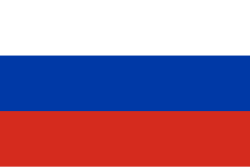| Russian Empire at the 1908 Summer Olympics | |
|---|---|
 | |
| IOC code | RU1 |
| in London | |
| Competitors | 6 in 3 sports |
| Medals Ranked 12th |
|
| Summer Olympics appearances (overview) | |
| Other related appearances | |
The Russian Empire (Russia) competed at the 1908 Summer Olympics in London, England. It was the second appearance of the European nation, after having missed the 1904 Games.